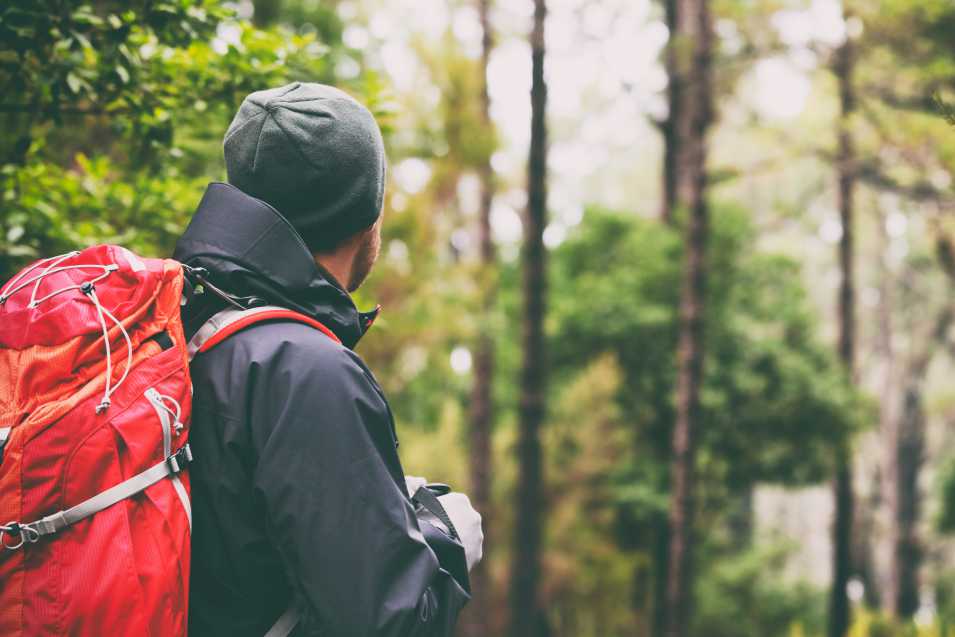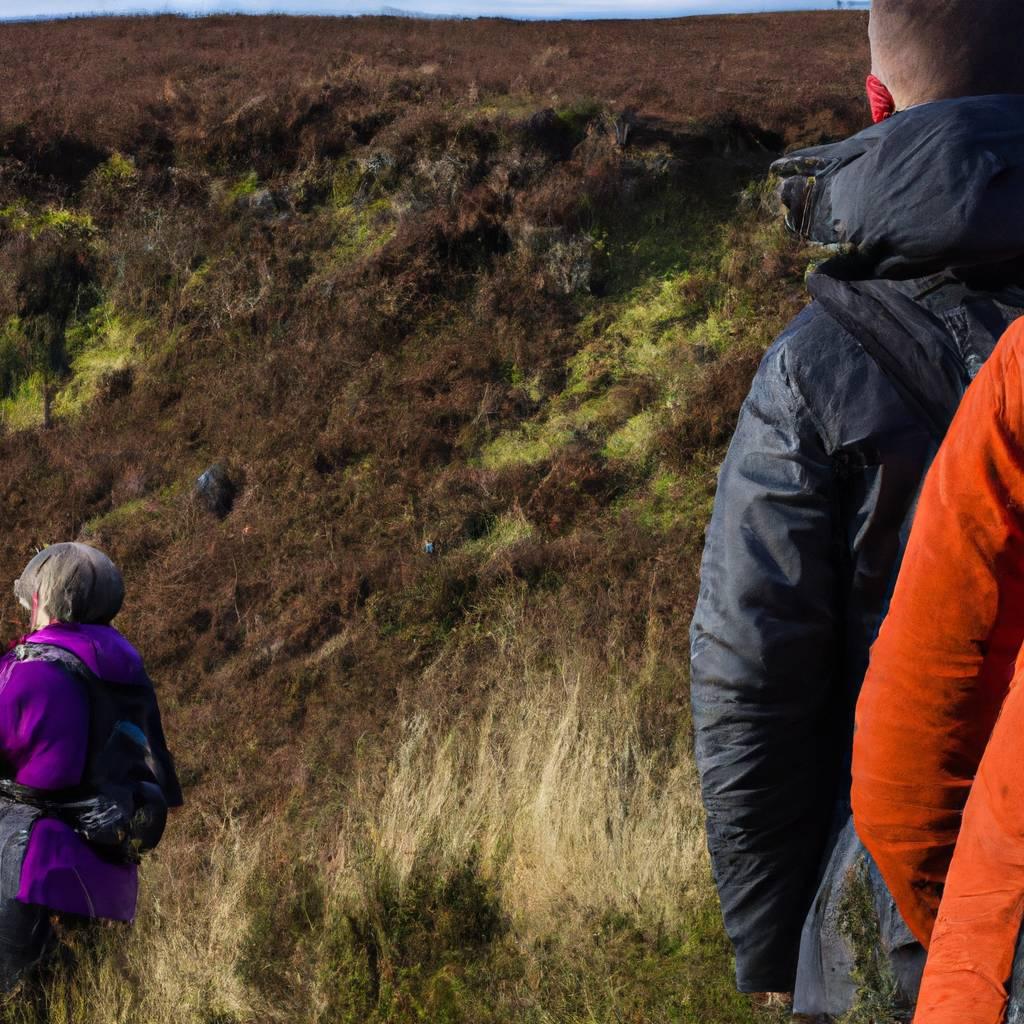Wilderness therapy is a unique and powerful approach that offers numerous benefits for adults seeking personal growth and transformation. Engaging in a wilderness therapy program allows individuals to reconnect with nature and themselves, fostering a deep sense of self-awareness and self-discovery.
The immersive nature of wilderness therapy provides a break from the noise and distractions of daily life, creating a space for introspection and reflection. In this serene environment, adults are able to gain clarity, overcome challenges, and develop valuable life skills.
Benefits Of Wilderness Therapy For Adults
One of the key benefits of wilderness therapy for adults is its ability to enhance mental health and emotional well-being. The wilderness acts as a natural and therapeutic setting, promoting healing and reducing stress. Detaching from technology and busy schedules allows participants to reduce anxiety and depression, improving their overall mental health. The sense of solitude and peace found in the wilderness also aids in managing and coping with trauma or grief.
Improving mental health, wilderness therapy for adults also cultivates a range of valuable life skills. Participants engage in various activities and techniques that promote teamwork, problem-solving, and effective communication. These skills are essential for success in both personal and professional life. Working together with others in the wilderness encourages individuals to collaborate and develop strong interpersonal connections, enhancing their ability to build and maintain healthy relationships.
| Benefits of Wilderness Therapy for Young Adults: |
|---|
|
If you are seeking a transformative and impactful journey, consider embarking on a wilderness therapy adventure.
Wilderness Therapy for Young Adults
Wilderness therapy for young adults is a unique and powerful approach to healing and growth. It offers a transformative experience by combining adventure, outdoor activities, and therapeutic interventions. This innovative form of therapy provides young adults with the opportunity to step out of their comfort zones, connect with nature, and challenge themselves physically, mentally, and emotionally.
Wilderness therapy programs for adults are designed to help individuals navigate the complexities of life and find their true potential. These programs aim to address a range of issues such as anxiety, depression, addiction, low self-esteem, and behavioral challenges. By immersing themselves in the wilderness, young adults are faced with the constant need to adapt, problem-solve, and work as a team. This process often leads to increased self-awareness, improved decision-making skills, and enhanced self-confidence.
Not only promotes personal growth but also encourages the development of crucial life skills. Through various activities such as hiking, rock climbing, camping, and team building exercises, participants learn important skills such as communication, leadership, resilience, and self-reliance. These skills are not only beneficial during the therapy program but also have a lasting impact on young adults’ lives, helping them overcome obstacles and navigate challenges long after the program has ended.
Success stories and testimonials from young adults who have participated in wilderness therapy programs are a testament to the effectiveness of this approach. Many individuals have experienced profound personal growth, discovered their true potential, and gained the tools and confidence needed to thrive in their daily lives. It is inspiring to hear how wilderness therapy has transformed their lives and provided them with a fresh perspective and a renewed sense of purpose.

How Wilderness Therapy Improves Mental Health?
When immersed in nature, away from the distractions and pressures of daily life, individuals can find solace and self-reflection. The wilderness therapy programs for adults provide a safe and supportive environment where participants can explore their emotions, confront challenges, and develop resilience. The natural environment acts as a mirror, reflecting back the participant’s strengths, weaknesses, and opportunities for growth.
In wilderness therapy, participants engage in a variety of activities and techniques that encourage personal introspection and self-discovery. These may include hiking, rock climbing, camping, and team-building exercises. Through these experiences, individuals learn important life skills such as problem-solving, communication, and leadership. These newfound skills not only foster personal empowerment but also provide valuable tools for managing mental health challenges in daily life.
Success Stories And Testimonials From Adults
| Name | Age | Transformation |
|---|---|---|
| John | 32 | Overcame depression and gained a sense of purpose |
| Sarah | 28 | Managed anxiety through outdoor activities and mindfulness |
| Michael | 40 | Developed self-confidence and improved interpersonal relationships |
One of the significant benefits of wilderness therapy is the opportunity to disconnect from the distractions of technology and immerse oneself in the present moment. The serene landscapes and vast wilderness provide a natural setting for individuals to practice mindfulness, a powerful technique for managing stress and promoting mental well-being. As participants learn to be fully present in nature, they develop an increased sense of self-awareness, acceptance, and gratitude.
The wilderness therapy for adults not only focuses on individual growth but also emphasizes the power of community and connection. Group therapy sessions and collaborative activities create a supportive network where individuals can share their experiences and provide mutual encouragement. The sense of belonging and shared mission often leads to strong bonds and lifelong friendships among participants.
Through wilderness therapy, individuals are not only exposed to the healing power of nature but also guided by experienced therapists who are well-versed in outdoor settings. These professionals provide personalized support and guidance, helping participants navigate their emotional journeys and develop effective coping strategies. Combining the expertise of mental health professionals with the transformative potential of nature creates a dynamic and holistic approach to improving mental health.
Activities And Techniques In Wilderness Therapy
One of the key activities in wilderness therapy for young adults is hiking. Hiking not only provides physical exercise but also allows individuals to connect with nature and enjoy its calming and rejuvenating effects. The serene beauty of the wilderness can serve as a therapeutic backdrop, enabling individuals to reflect, gain clarity, and find solace.
Hiking encourages individuals to push their boundaries, build resilience, and learn important life skills such as navigation, teamwork, and problem-solving.
Hiking, wilderness therapy programs for adults often incorporate activities such as camping, rock climbing, and backpacking. These activities require individuals to step outside their comfort zones, confront fears, and overcome obstacles. Through these experiences, participants develop a sense of accomplishment, self-confidence, and personal growth. The challenges encountered during these activities mirror the real-life challenges individuals may face, allowing them to build resilience and develop effective coping strategies.
Guided by experienced therapists and outdoor experts, wilderness therapy programs for adults employ various techniques to facilitate healing and growth. These techniques may include individual and group therapy sessions, experiential learning exercises, and mindfulness practices. By combining traditional therapy approaches with the unique setting of the wilderness, participants are given the opportunity to explore deep-seated emotions, address past traumas, and develop effective strategies for overcoming mental health challenges.
Related Article: Bluefire Wilderness Therapy Reviews
The Right Wilderness Therapy Programs for Adults
When it comes to finding the right wilderness therapy program for adults, there are several factors that need to be considered. Wilderness therapy for adults can be a transformative experience, providing individuals with the opportunity to reconnect with themselves and nature in a profound way. Not all programs are created equal, and it’s important to find one that aligns with your specific needs and goals.
It’s crucial to research and select a program that is reputable and accredited. A wilderness therapy program for young adults should have trained and certified staff who have experience working with adults in a wilderness setting. Look for programs that have a proven track record of success and positive testimonials from past participants.
Another important consideration is the specific activities and techniques used within the program. Wilderness therapy programs for adults can incorporate a wide range of activities, such as hiking, camping, rock climbing, and group therapy sessions. It’s important to choose a program that offers activities that resonate with you and align with your goals for therapy.
| Benefits of Wilderness Therapy for Adults: | Success Stories and Testimonials from Adults: | How Wilderness Therapy Improves Mental Health: |
|---|---|---|
| 1. Enhanced self-awareness and personal growth. | 1. John, a 35-year-old participant, shares his incredible journey of self-discovery and healing through wilderness therapy. | 1. Research has shown that spending time in nature can reduce symptoms of anxiety and depression. |
| 2. Development of essential life skills, such as problem-solving and decision-making. | 2. Jane, a 40-year-old mother, talks about how wilderness therapy helped her overcome past traumas and become a better parent. | 2. The outdoor environment provides a unique therapeutic setting that promotes emotional well-being and resilience. |
| 3. Increased self-confidence and improved self-esteem. | 3. Mark, a 45-year-old professional, discusses how wilderness therapy empowered him to pursue his true passions and make positive life changes. | 3. Engaging in physical activities in nature releases endorphins, which can enhance mood and reduce stress. |
It’s important to consider the duration and location of the program. Some wilderness therapy programs for adults are short-term, lasting only a few weeks, while others may span several months. Choose a program length that aligns with your needs and availability. Consider if you prefer a program that takes place in a specific geographic location or prefer a certain type of wilderness environment.
Wilderness Therapy Reviews And Testimonials From Adults
When it comes to wilderness therapy for adults, success stories and testimonials go a long way in showcasing the powerful impact this program can have on individuals. These stories serve as a source of inspiration and motivation for others who may be considering embarking on their own wilderness therapy journey. They provide a glimpse into the transformative experiences and personal growth that can be achieved through this unique and immersive therapeutic approach.
One success story that stands out is the tale of John, a middle-aged man who had been struggling with depression and anxiety for years. Feeling overwhelmed and lost, he decided to enroll in a wilderness therapy program for adults. From the moment he stepped into the wild, John was greeted with a sense of freedom and connection he had long forgotten. Surrounded by nature’s beauty, he embarked on a journey of self-discovery and healing.
The wilderness therapy program provided John with various activities and techniques that helped him address his underlying issues and develop valuable coping skills. Through guided hikes, group therapy sessions, and reflective journaling, John learned to confront his fears, embrace vulnerability, and find strength in community support.
| Date | Progress |
|---|---|
| Week 1 | John started opening up during therapy sessions and sharing his struggles with the group. |
| Week 2 | He conquered his fear of heights by summiting a challenging mountain peak, boosting his confidence. |
| Week 3 | John found solace in nature’s serenity, experiencing moments of profound peace and clarity. |
| Week 4 | He developed strong bonds with his fellow participants, building a supportive network for ongoing recovery. |
By the end of his wilderness therapy journey, John had undergone a remarkable transformation. Not only had he gained valuable skills and insights, but he had also rediscovered his inner strength and joy for life. The program had empowered him to overcome his mental health challenges and set him on a path towards long-term well-being.
John’s success story is just one of many illustrating the incredible impact of wilderness therapy for adults. These testimonials showcase the potential for growth, healing, and personal transformation that lies within each individual. They serve as a reminder that no matter how challenging life may seem, there is always hope for a brighter future.
